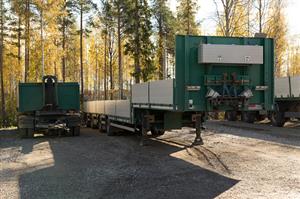
When you're looking at having equipment appraisals performed, you may hear about a specialist who is an ASA accredited machinery & equipment appraiser. But what does that mean? What's involved in the process of becoming an accredited appraisal specialist? Let's take a look at how the process works:
Becoming an ASA accredited machinery & equipment appraiser
- Make sure you meet the prerequisites first. You need to have been a full-time appraiser for at least two years to become an Accredited Member (AM) or five years to become an Accredited Senior Appraiser. For this program, 2,000 hours is considered one full year of work, so you can still receive accreditation without working full-time. You'll also need a bachelor's degree or an equivalent as described in the accreditation guide.
- Become a member of the American Society of Appraisers. This requires the membership form to be completed and submitted with a professional resume or statement of qualifications, three letters of reference and fees for application, one year's membership and any journals.
- After the membership is approved, you'll have ten months to pass an ASA ethics exam and pass a 15-hour National Uniform Standards of Professional Appraisal Practice (USPAP).
- You'll also need to go through four classes specific to the machinery and equipment industry, specifically ME201, ME202, ME203 and ME204 which are collectively referred to as the Principles of Valuation (POV) courses. Passing is required to continue your application process.
- After passing these courses, you'll need to assemble your final application package. It should include:
- A current, valid USPAP certificate on file with the ASA.
- A copy of a college diploma or transcript, or other evidence of education per the education equivalency in the accreditation guide.
- A copy of your log of two or five years summarizing your appraisal experiences, depending on whether you're considering the AM or ASA designation. An equivalent amount of part-time work may be submitted.
- A narrative appraisal report completed for a client within the past two years.
- A signed appraisal report release form.
- A signed affirmation statement.
- The accreditation fee.
- The completed application for accreditation.
- At this point, the package is sent along to a qualified member of the International Board of Examiners, who may take up to 40 days to review all the material provided. At this point in the process, you'll be notified every time your materials and application package is acted upon, helping you plan for the next steps. Once they have completed their evaluation, it is then sent on to a second member of the Board of Examiners who may take an additional 40 days to review the material. This phase of the process can last up to three months, once mailing time and review time is factored into the calculations.
- A decision is rendered by the International Board of Examiners regarding the quality of the application and ability of the individual applying to the program, including experience, education, exam scores and quality of appraisal reports. At that time, it is decided by the board whether the applicant receives accreditation or must resubmit the application package with all appropriate corrections or additions made.
As you can see, becoming an ASA accredited machinery & equipment appraiser is hard work, but they provide the best results for their clients. If you need to have machinery valuation performed on your company's equipment, contact an ASA accredited machinery & equipment appraiser.





